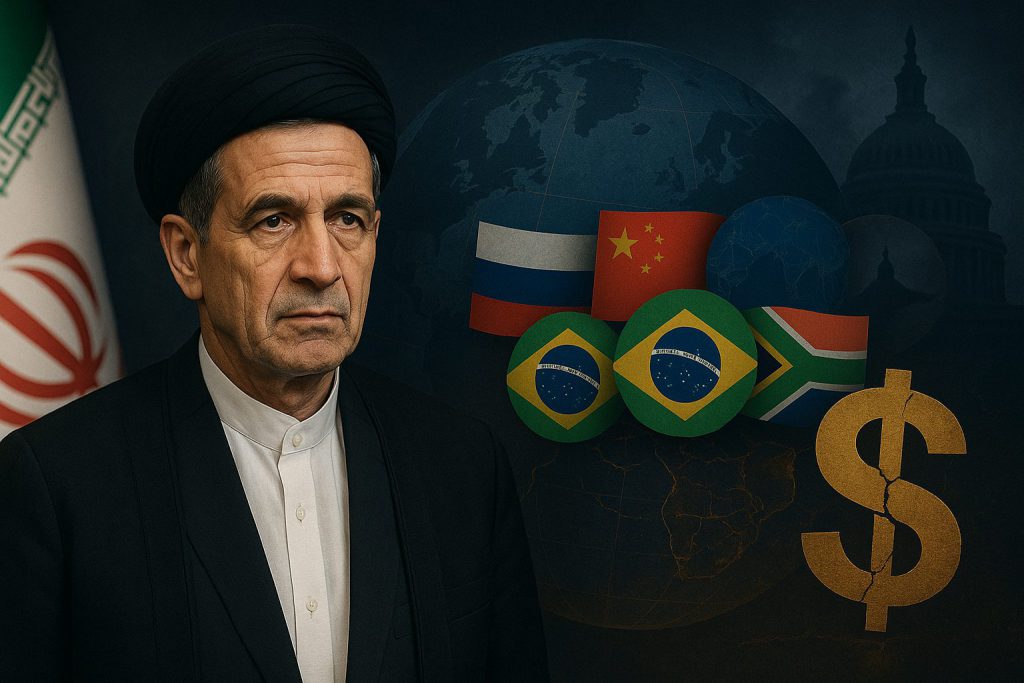Iran’s BRICS Membership Throws Wrench in Brazil’s Global Reform Ambitions
Geopolitical tensions flare as Iran—freshly inducted into the BRICS bloc—undercuts Brazil's push for a multipolar world order. The Islamic Republic's aggressive posturing creates headaches for Brasília's diplomatic corps during delicate reform negotiations.
Behind the scenes, financial analysts smirk at the irony: emerging markets clamoring for decentralization while one member actively destabilizes the process. Another day in the theater of economic sovereignty.
Geopolitical Tensions in BRICS Challenge Brazil’s Push for Reform

Brazil’s Vision Clashes with Iran’s Presence
Iran, part of BRICS, has fundamentally altered the group’s direction. Brazil’s presidency is struggling to maintain its reform agenda right now. President Lula’s government had hoped to champion democratic multilateralism and also inclusive global governance reform, but the expanded membership creates significant obstacles.
Brazil’s BRICS agenda centers on concrete themes such as green energy transition, vaccine cooperation, and also trade reform. However, BRICS geopolitical tensions have intensified following the recent bombing of Iran. These are threatening to overshadow Brazil’s carefully planned discussions at the time of writing.
The situation presents what many are calling complex challenges for democratic multilateralism. Expert analysis from Dr. Christopher Sabatini raises important questions about the group’s future direction and unity.
Autocratic Shift Undermines Democratic Goals
The inclusion of Iran, part of BRICS, alongside other autocratic members has shifted the organization away from Brazil’s vision, and this shift is becoming more apparent. Global economic reform challenges have multiplied as new additions prioritize narrow national interests over collective progress.
Iran has announced it will send a delegation to Rio. So, it’s risking what experts describe as dragging discussions toward sovereignty statements rather than substantive reform. Brazil’s BRICS agenda now competes with geopolitical positioning, while emerging markets instability adds another LAYER of complexity to an already difficult situation.
Analysis shows that BRICS geopolitical tensions have been exacerbated by the Iran-Israel war. Russia’s invasion of Ukraine also created what observers call “dangerous distractions” from Brazil’s intended outcomes at the time of writing.
Limited Options for Brazilian Success
Brazil might have to collaborate with the democratic members of BRICS such as India and Indonesia than seeking concurrence with Iran which is being part of BRICS but is proving to be a challenge at the moment. Smaller coalitions might also be used to promote Brazil’s BRICS program, with trades being overhauled and also with the cooperation in climate change.
There are issues of instability in emerging markets and difficulty in global economic reform. Therefore, Brazil has to drop expectations of Rio summit sharply. It is impossible to imagine extensive agreements between BRICS countries due to the geopolitical tensions that exist among the countries but with strategic collaborations, specific progress can be made. Brazilian BRICS presidency will eventually succeed by avoiding being caught in Iran, one of the BRICS, and promoting key reform agenda despite the tension at the time of writing.

